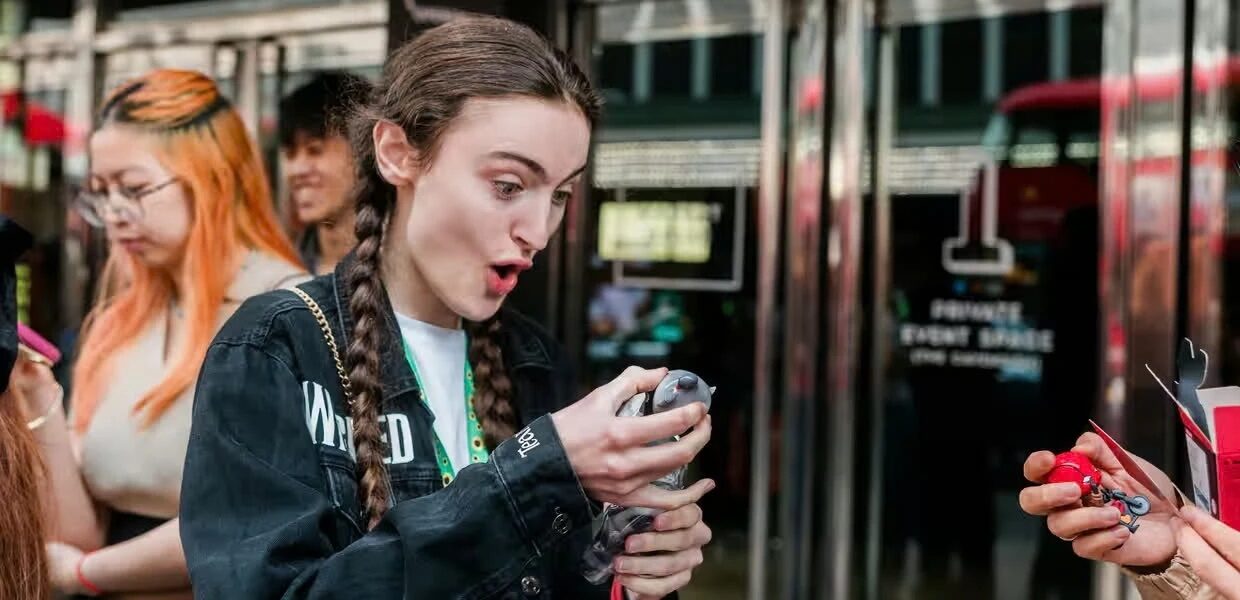If young British people used to worship American culture, now they are crazy about cute things from Asia.
One Saturday afternoon, Ayla and Edie (both 12 years old) went out to Westfield Stratford City – a shopping mall next to the old Olympic Park in London, England.
First, the girls stopped at Taiwanese bubble tea shop T4, which sells sweet cold drinks with colourful tapioca pearls and bursts of flavour. Ayla opted for rose tea, Edie for strawberry. Each cup costs £6. “It’s quite expensive. But I earn pocket money by helping my parents with little things like taking the dishes out of the ruwae machine or folding the laundry,” Edie said.
The two children walked a few meters further to Kenji – a gift, homeware, snack and stationery shop that advertises itself as a “brand influenced by East Asian culture”.
Ayla bought a £10 (US$14) “sushi” cat plushie – a soft stuffed animal with a pillow strapped to its back like it was a bed of tuna-covered rice – as a birthday present for her friend. “My friend brings sushi to school every day. He really likes it,” Ayla said.
Finally, the pair arrived at Pop Mart, a Chinese store. The shelves were lined with hundreds of intricately painted, brightly painted £13.50 ($18) figurines, which the brand describes as “art toys”. Some were based on well-known characters, such as Harry Potter or Teletubbies, but most were designed by Pop Mart and shared a distinct East Asian aesthetic, with oversized eyes and disproportionately large heads.
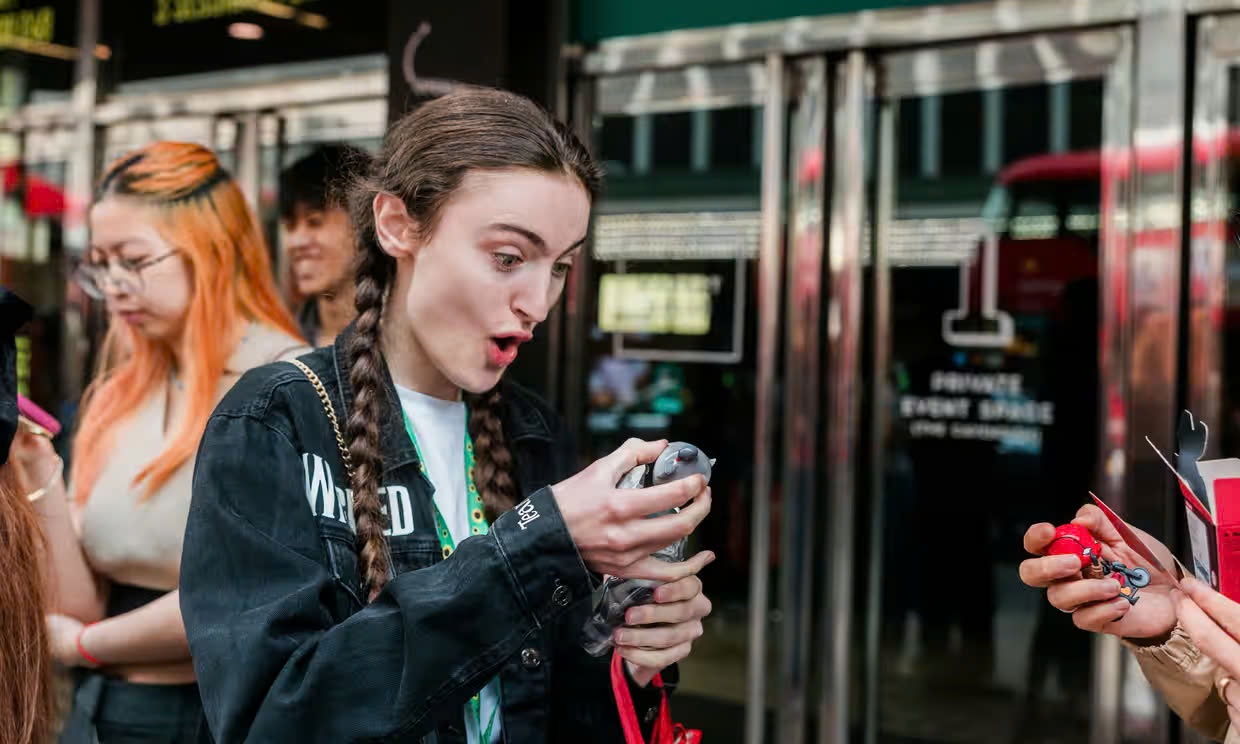 |
| Pop Mart, a Chinese brand, is taking the UK by storm with its cute, mysterious toy boxes. |
Ayla and Edie both stopped by the Skullpanda section, a character created by Chinese artist Xiong Miao who is part goth, part astronaut, with flowing hair and vampire makeup. “I think they’re cute and creepy at the same time,” Edie said, trying to explain the appeal. “They’re so weird, I can’t see anything like them anywhere else.”
The shift from West to East
The friends are not the only young people in Britain fascinated by Asian culture. Guardian reporter Harry Wallop spoke to many of the shoppers at Pop Mart, mainly students in their early 20s, most of them female.
Many people enthusiastically shared about their interest in watching anime and Japanese cartoons on Crunchyroll, a dedicated streaming app; about how they embraced big hits from Korea like K-pop, K-dramas, Korean sausages and kimchi; and about their passion for enjoying pearl milk tea.
This is not a phenomenon unique to London: Oxford has at least 10 bubble tea shops; Kenji can be found in Liverpool and Preston; Miniso – a Chinese retailer of homewares, toys, stationery and cosmetics – has branches in Brighton and Newcastle; Glasgow’s Buchanan Galleries shopping centre has Kim’s – a brand serving Korean corn dogs and kimchijeon (pancakes); and Costa Coffee – the UK’s largest coffee chain – is selling blueberry and mango bubble tea.
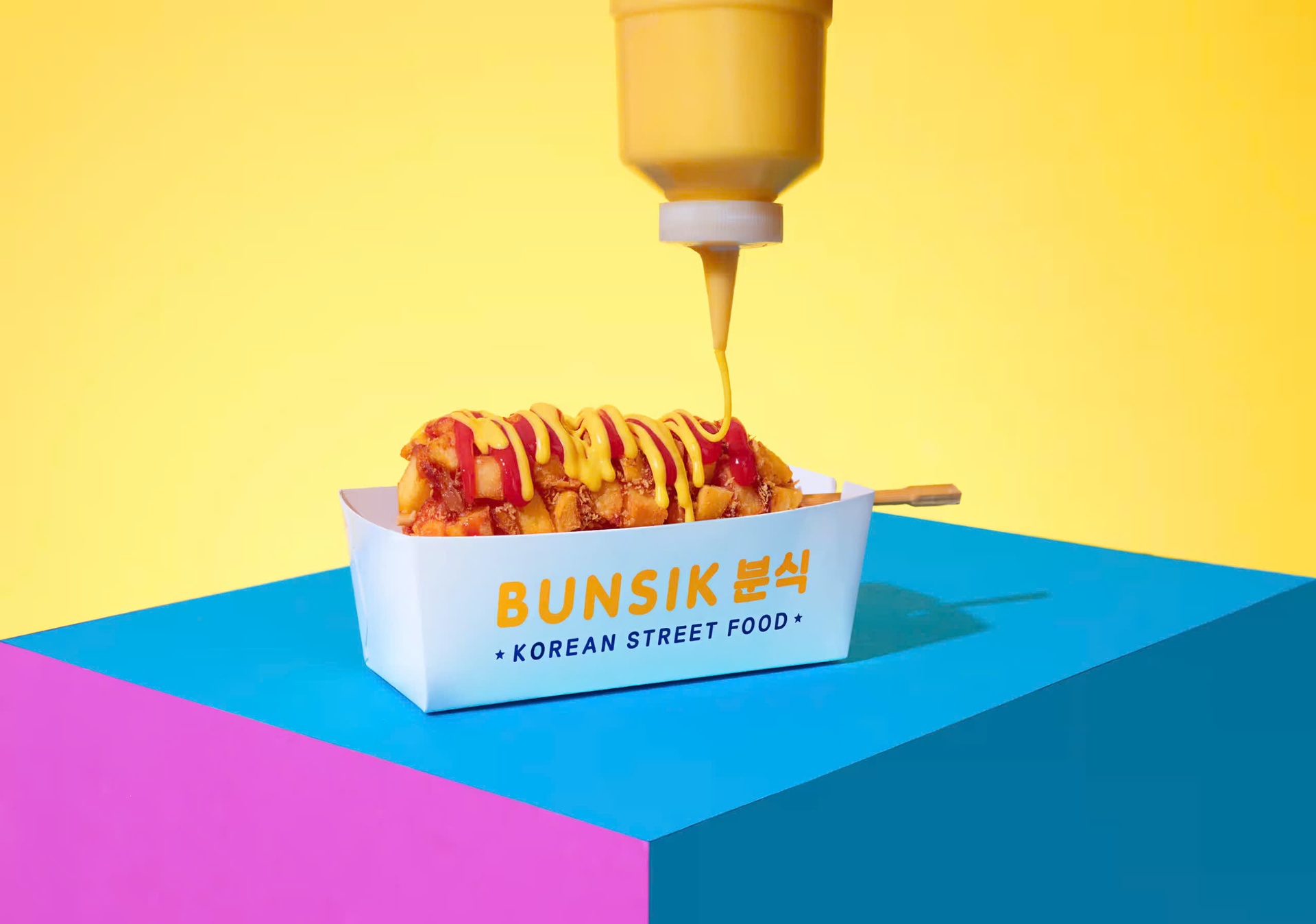 |
| Korean corn dogs are popular among British youth. |
When Wallop was growing up in London in the 1980s, almost everything cool – from toys, snacks, fashion to television and movies – came from America: Levi’s jeans and Converse sneakers, The A-Team, scratch-n-sniff stickers, burgers and milkshakes, Marty McFly and Ferris Bueller…
Nowadays, teenagers and young generations tend to lean more towards eastern culture, specifically East Asia: mainland China, Japan, Taiwan and Korea.
The trend isn’t just happening at the mall. At Glastonbury 2024, Seventeen – a South Korean boy band that sold more than 10 million albums last year – made history as one of the acts to headline the Pyramid Stage.
When asked why she loves Asian culture so much, Edie said: “Back then, America was the future. But now, out there, everything different and crazy comes from Asia.”
Part of the rise is due to pure economic incentives. In the case of South Korea, the government has been aggressive in funding cultural exports such as K-pop and K-drama, investing £229m by 2023. While China’s rapid economic growth may have stalled, some companies have raised large sums on the stock market to expand globally. The parent company of Chinese retailer Temu, which competes with Amazon, is one example, and Pop Mart, now worth £5.2bn, is another.
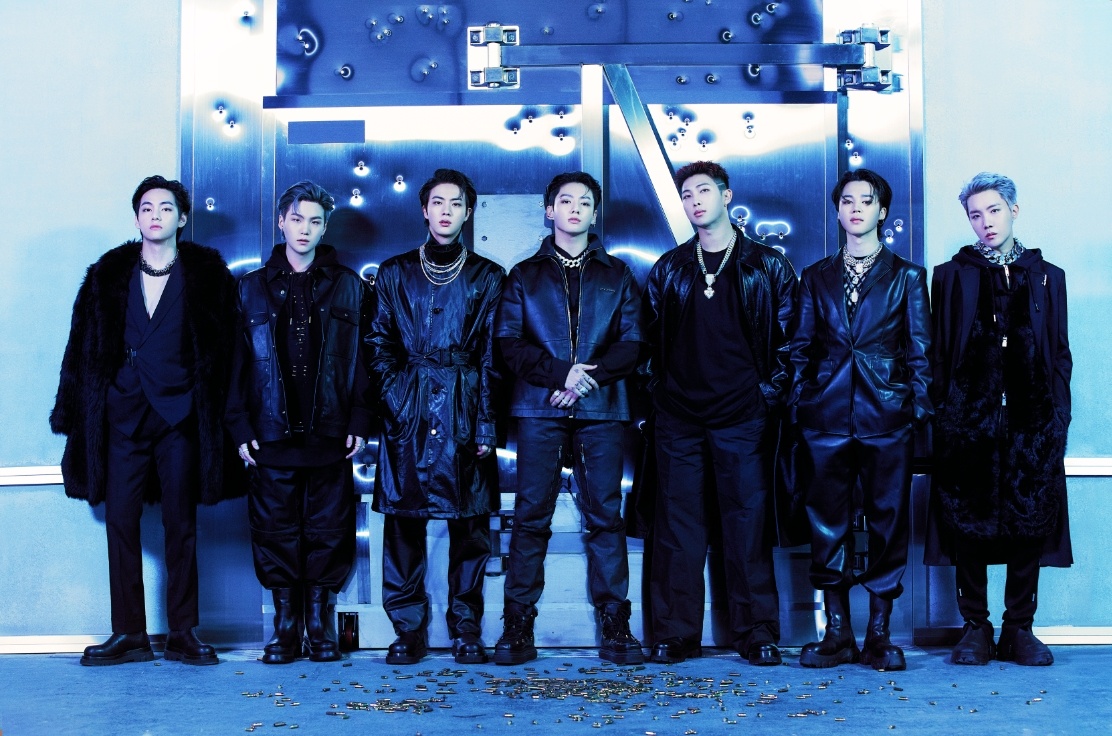 |
| The K-pop craze is part of a wave of Asian culture sweeping the UK. Photo: Big Hit. |
But this shift from West to East is about more than just money. A generation of young British consumers seem to have found something in East Asian food, culture, brands and bands that they can’t find in the West.
“I don’t think young people hate America, it’s just that now they can see other things around the world. When I was a kid, America was always on TV. We didn’t have the opportunity to see other things, but now the ‘windows’ have opened up,” said Zareen Islam, 38, from London, a toy collector, while visiting Pop Mart with her two daughters Ella, 7, and Haani, 6.
Kawaii culture explosion
The most curious East Asian brand in a London department store is Kenji. Many Brits still think Kenji is from Japan.
There’s a section selling packaged foods and snacks, like matcha-flavored KitKats and bubble tea mochi, and a wall of stuffed toys. The rest of the store is a mix of stationery, key chains, gifts, and small household items. Everything is steeped in the culture of “kawaii,” the Japanese term for “cute.”
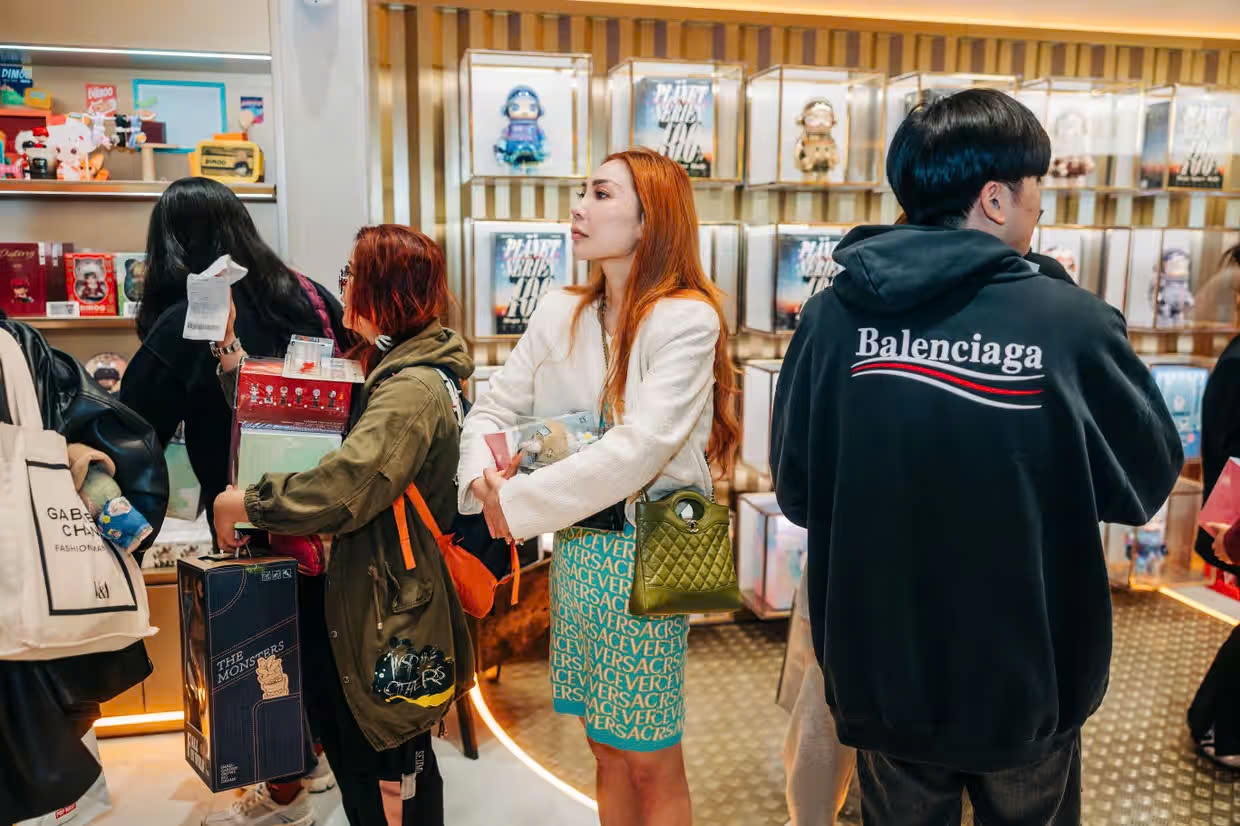 |
| Kawaii culture is having a huge impact among British youth. |
Verity Smith, 22, a big Kenji fan, browses the products in store. “When they only had a store in Manchester, I took the train from London to the Arndale. I know it’s a bit of a stretch. But they have my favourite stickers from all over the world,” she says.
In fact, Kenji isn’t actually from East Asia. The company was founded a decade ago by Derek Yong (now 34), who was born in Malaysia and came to the UK to study economics at Birmingham University, before becoming an accountant at PricewaterhouseCoopers.
Yong and his business partner “thought about what the UK market was missing”. They discovered that many distinctive British brands were doing well in Asia.
“People appreciate that cultural difference, that newness, that freshness. So we thought, why not create an East Asian-focused brand to complement the UK market. That’s how Kenji was born,” Yong tells the Guardian from his Warrington headquarters.
Kenji currently has 10 stores, mainly in the northwest, but Yong is aiming to open 250 stores within the next 10 years.
“Kenji is from the UK. That’s where our stores and team are based. But we’ve always presented ourselves as an East Asian-influenced brand,” Yong explains.
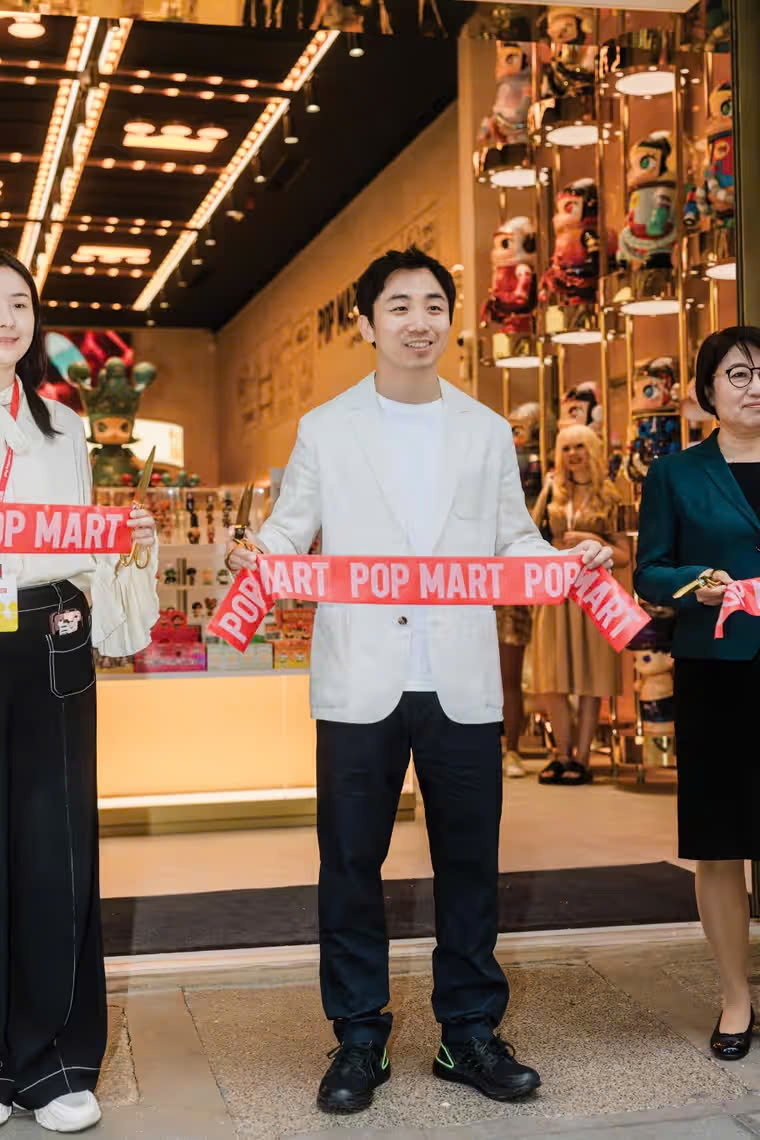 |
| Pop Mart opened its London store in June. |
Misbah Chaudhary, 16, and a friend came to Kenji to find an end-of-year gift for her French teacher after she had just finished her exams.
“We had a joke with him about avocados. So maybe we’ll buy him an avocado plushie,” Misbah said. “Kawaii is really popular, it’s trending all over social media, on TikTok and Instagram,” she added.
Kawaii isn’t just for kids. Some shoppers spoke of nostalgia for their childhoods, even though they are barely out of their teens. Shan Ahmed, 20, a law student, browses oversized Hello Kitty and Cinnamoroll water bottles at Miniso.
“Life is a bit bleak right now, especially the cost of living. When I look at all these things, it really adds a lot of color,” she said.
“The average disposable income of our customer base is £30-£50 a week, depending on their age, particularly those under 18,” says Yong, managing director of Kenji. “These days, teenagers have a lot more disposable income than we think. So if it’s a product or a brand that they have a connection with, that’s where they’ll prioritise their spending.”
Constant innovation is one of the secrets to Pop Mart’s success. To date, the company has launched 1,000 product lines, each consisting of 9-12 different figurines, with new ones appearing every week.
That has helped cultivate a deeply loyal following, some of whom queued from 3am to be the first through the doors of the new store on London’s Oxford Street, which opened in June.
“In every country, our goal is to open a store in the most popular central location. I am very happy that we have such a big fan base in the UK,” said Wang Ning, the brand’s 37-year-old founder. According to Forbes , Pop Mart’s success has made Ning a billionaire, with a fortune of nearly $16 billion .
